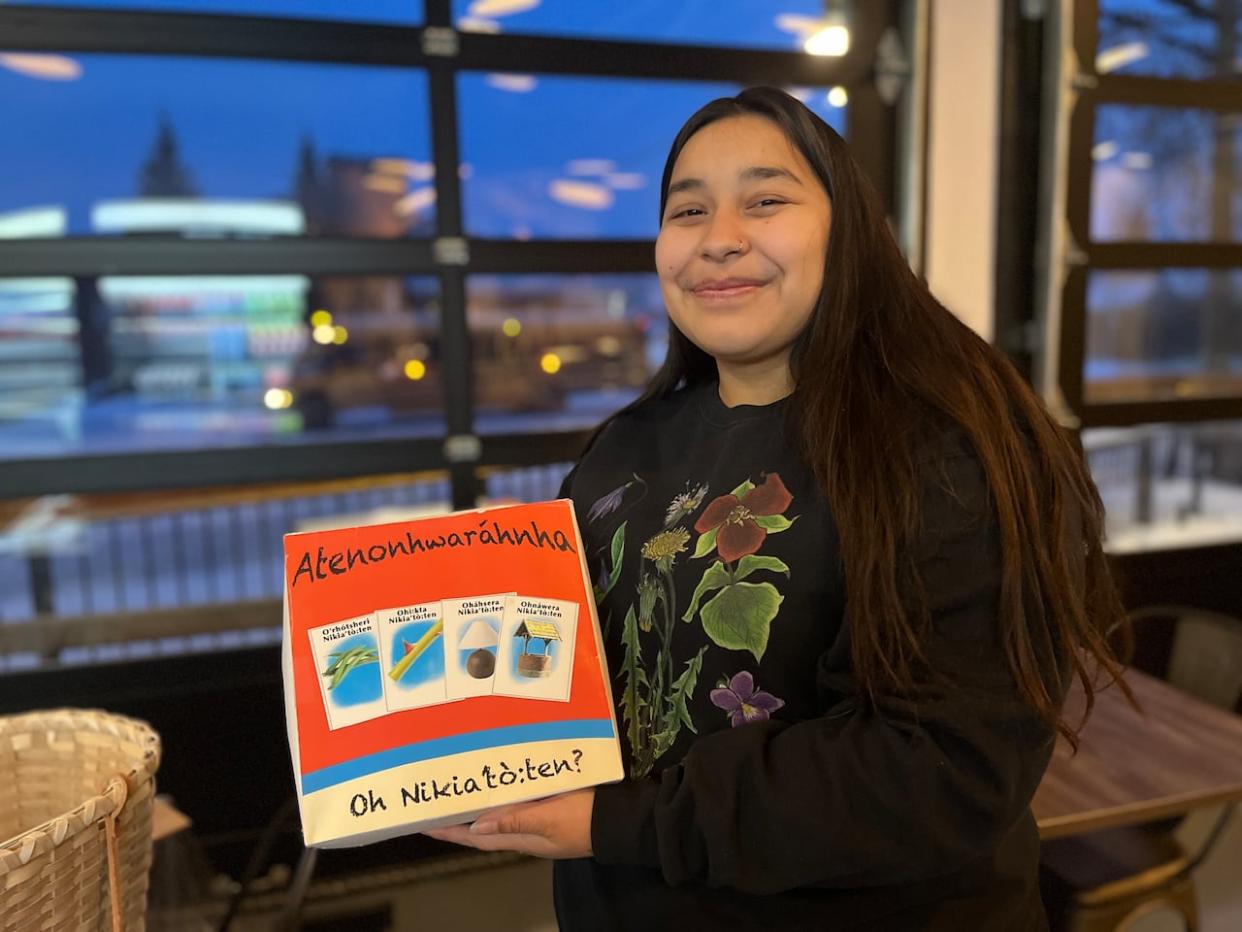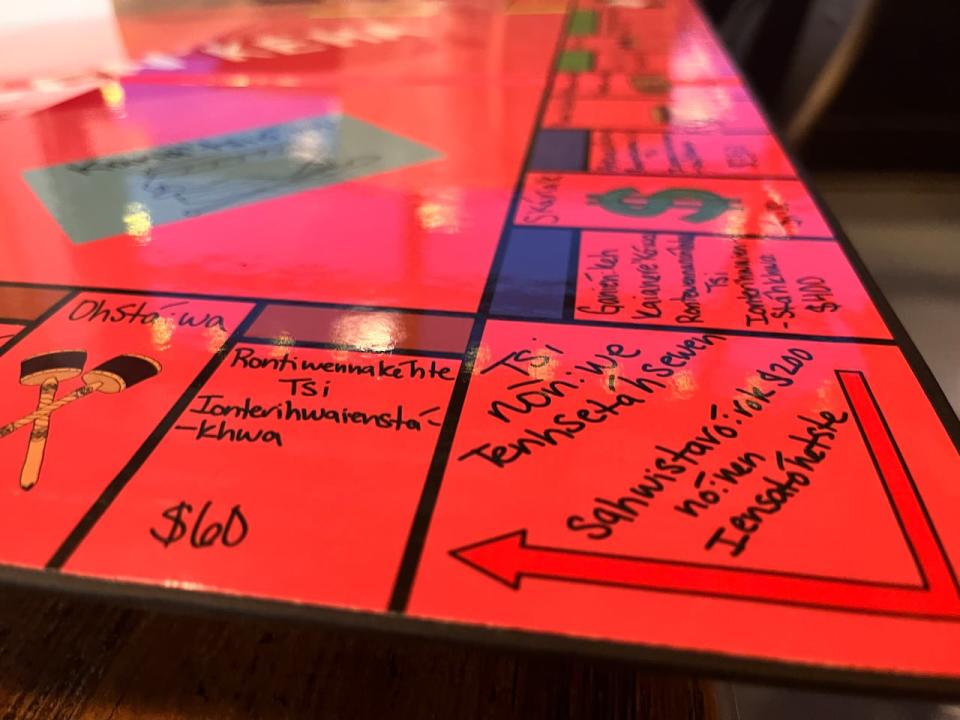Why this Akwesasne woman is re-creating board games in Kanien'kéha

What if a Monopoly game board featured names and places relevant to Kanien'kehá:ka (Mohawk) culture instead of Reading Railroad and Park Place?
That's what Niiakohontésha Gray envisioned when creating resources in Kanien'kéha, or the Mohawk language.
"Whenever I was going to school ... we had a lot of different resources but I noticed I don't really have any games or [more fun] resources that you could play," said Gray, who is from Akwesasne, on the Quebec, Ontario and New York state borders.
"I know for me, it's a lot easier learning whenever it's more fun."
Gray is a graduate of Ratiwennahní:rats, a two-year adult language immersion program offered by the Kanien'kehá:ka Onkwawén:na Raotitióhkwa Language and Cultural Center in Kahnawà:ke, south of Montreal.
After she graduated, she began teaching children at a grassroots immersion school in Ganienkeh, a settlement near Altona, N.Y. She noticed her students would always grab board games in English to play during their breaks, and wanted them to have options in their language.
She began translating and re-creating prototypes of various popular board games to reflect Kanien'kehá:ka language and culture and is now producing copies for other educators, language learners and their families.
"I'm not the best speaker but I have an idea of what I want to do," she said.

One of the prototypes of games Niiakohontésha Gray translated and re-created using Kanien’kehá:ka language and culture. (Ka'nhehsí:io Deer/CBC)
That meant, instead of railroads, kids can land on kanonhséhsne — longhouses — in Ganienkeh, Kahnawà:ke and Akwesasne. Tekiatén:ros, a matching game, uses words from a dictionary of Kanien'kéha nouns that is produced by the Kanien'kehá:ka Onkwawén:na Raotitióhkwa Language and Cultural Center.
Teiotién:taron River McComber, who teaches in Ganienkeh and worked with Gray before she left for a new job in her community, says it's a creative way to reinforce the curriculum that students in Ratiwennahní:rats and elsewhere learn.
McComber was also in Ratiwennahní:rats, in the cohort a year ahead of Gray.
"All the schools that I've been to would love to have these things because when I was working there [we] didn't have anything quite like this," said McComber.

Tekiatén:ros is a matching game using images for words from a dictionary of Kanien’kéha nouns. (Ka'nhehsí:io Deer/CBC)
McComber said there aren't enough language resources available beyond the classroom, especially for children and even for many grassroots schools, being creative with the curriculum falls on the teachers.
"Everybody would love this to happen but nobody is kind of taking time out of their work space to do it," said McComber.
"She's doing what she can, and it's wonderful."
For Gray, doing this has helped her break out of her comfort zone by having to approach former classmates and elders to help with translations.
"I have to reach out to people; I have to talk to people," she said.
"I have a hard time reaching out to elders ... just because I know they're real fluent and I know that I'm not…. [I] just feel like I'm going to mess up and I'm just gonna embarrass myself. But I ended up reaching out to a few of them, and talked to them and … they helped me."


